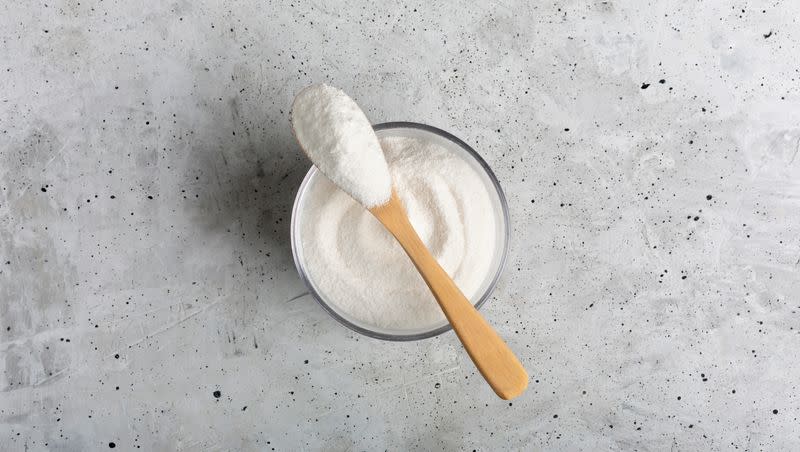Why is collagen trending in the beauty industry?

Collagen has become such a buzzword in influencer content on social media that the hashtag #collagen has over 4.4 billion views on TikTok.
The protein entices consumers to include it in their daily supplements with the promise of boosting hair and nail growth and restoring skin. “In the U.S., collagen product sales are forecast to reach $316 million in 2025, with growth of 7%–10% expected annually between 2023 and 2025,” per Glanbia.
What exactly is collagen?
Collagen is a protein and accounts for around 30% of the protein in your body, according to Cleveland Clinic.
Emphasizing that it can be found nearly everywhere in your body: “Collagen is the primary building block of your body’s skin, muscles, bones, tendons and ligaments, and other connective tissues. It’s also found in your organs, blood vessels and intestinal lining.”
According to Healthline, there are 28 different types of collagen, but four main types:
Type 1: Most common and resides in all connective tissue.
Type 2: Inside our joints and shock absorbers like the ones surrounding the spinal cord and neck.
Type 3: The primary component of reticular fibers, present in both the skin and blood vessels.
Type 4: Found in your ears, kidneys and eye lens.
Related
What does collagen do to the body?
Collagen has gained so much popularity in health trends for its “anti-aging” benefits, and companies are trying to profit from that promise.
According to Harvard Health, there are few studies and not enough evidence to prove that collagen supplements and drinks actually promote hair, nail and skin health.
“Our bodies cannot absorb collagen in its whole form. To enter the bloodstream, it must be broken down into peptides so it can be absorbed through the gut. ... Thus far, no human studies have clearly proven that collagen you take orally will end up in your skin, hair, or nails,” per Harvard Health.
It seems that when it comes to collagen, how beneficial it is depends on who you ask. According to Healthline, collagen has a long list of health benefits that “may” work:
Improve skin health.
Alleviate joint pain.
Prevent bone loss.
Increase muscle mass.
Improve heart health.
“Although these potential effects are promising, more research is needed before formal conclusions can be made,” Healthline said.
What happens to collagen production as you age?
As you age, your body creates less collagen and loses it at a faster rate, and according to Verywell Health, your body can begin slowing down production as early as your mid-20s.
Adding that, “Signs of collagen loss include wrinkled skin due to elasticity loss and stiff joints. Additionally, collagen is directly related to gut health, with less of the protein causing ulcers and digestive problems.”
While there is some evidence supporting the benefits of taking collagen supplements, it’s essential to consult with a health care professional before starting any supplement regimen. They can provide advice tailored to your specific health needs and conditions. It’s also important to note that the effects of supplements can vary from person to person.

